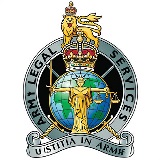*/

David Fardy outlines what to expect, what you will learn, and what you can gain from a pupillage at the employed Bar
‘Congratulations! You have secured pupillage. Now the hard work begins…’
The above may be a familiar refrain to many of you; some may still have these words ringing in your ears since May earlier this year. I was certainly told this when I secured pupillage many moons ago. My immediate reaction was a mixture of irritation and dread: are you saying my GCSEs, A-Levels, degree, Bar Course, prior employment etc. were all easy? And if, relative to pupillage, this was all easy then how hard will pupillage possibly be?
In my opinion, the above phrase should really substitute the word ‘hard’ for ‘practical’. Pupillage is hard work, but no harder than the extensive efforts you will have put in to reach this stage, and it would be unfair and dismissive to suggest otherwise. Rather, pupillage will test you not to new lengths, but in new ways.
Above all, pupillage tests how you are able to translate the skills of the classroom into the courtroom. Academic studies build a foundation for advocacy, but in a necessarily artificial and somewhat sanitised context. Cross-examination in seminar groups will typically be with a compliant witness who answers questions helpfully and with the intention of supporting the development of your advocacy skills; real witnesses seldom afford you that luxury. Submissions delivered in an uninterrupted 30-minute block with positive and constructive feedback thereafter might be replaced with a back-and-forth judicial exchange lasting five minutes, if that.
At the employed Bar, pupillage is also the opportunity to develop skills outside the courtroom. Those who read my article in the Counsel Bar Student Guide last year will know that I see the main distinguishing features of the employed Bar as being an increased focus on a) commercial awareness and b) teamwork. We will be looking for our pupils to develop these skills over the course of pupillage.
These two skills are underpinned by building relationships, both professional and personal. We want our pupils to be valued, and valuable – junior barristers will of course be undertaking work for established clients (and you will need to show an aptitude for doing so), but you are never too young to start forging your own path and procuring work from, and servicing, new clients.
As to how to best develop these skills, I would start with this broad premise: seek out reason to DO something, rather than NOT to do it. Take any and all opportunities that arise to try new things; gain new skills; embrace new experiences. Do not be dissuaded from an opportunity because of its time or travel requirements – most (if not all) employers will have policies in place to ensure that you are not left out of pocket for travel, sustenance and potentially even overtime pay, so this financial security allows you the freedom to explore the opportunity itself.
What does ‘exploring the opportunity’ mean? In my view, it means:
Ultimately, pupillage is a fantastic opportunity to get the measure of law in practice; to develop your legal, professional and personal skills; and to build relationships which might last you a lifetime. It is a time which should be treasured. Because after pupillage, then the hard work begins…


‘Congratulations! You have secured pupillage. Now the hard work begins…’
The above may be a familiar refrain to many of you; some may still have these words ringing in your ears since May earlier this year. I was certainly told this when I secured pupillage many moons ago. My immediate reaction was a mixture of irritation and dread: are you saying my GCSEs, A-Levels, degree, Bar Course, prior employment etc. were all easy? And if, relative to pupillage, this was all easy then how hard will pupillage possibly be?
In my opinion, the above phrase should really substitute the word ‘hard’ for ‘practical’. Pupillage is hard work, but no harder than the extensive efforts you will have put in to reach this stage, and it would be unfair and dismissive to suggest otherwise. Rather, pupillage will test you not to new lengths, but in new ways.
Above all, pupillage tests how you are able to translate the skills of the classroom into the courtroom. Academic studies build a foundation for advocacy, but in a necessarily artificial and somewhat sanitised context. Cross-examination in seminar groups will typically be with a compliant witness who answers questions helpfully and with the intention of supporting the development of your advocacy skills; real witnesses seldom afford you that luxury. Submissions delivered in an uninterrupted 30-minute block with positive and constructive feedback thereafter might be replaced with a back-and-forth judicial exchange lasting five minutes, if that.
At the employed Bar, pupillage is also the opportunity to develop skills outside the courtroom. Those who read my article in the Counsel Bar Student Guide last year will know that I see the main distinguishing features of the employed Bar as being an increased focus on a) commercial awareness and b) teamwork. We will be looking for our pupils to develop these skills over the course of pupillage.
These two skills are underpinned by building relationships, both professional and personal. We want our pupils to be valued, and valuable – junior barristers will of course be undertaking work for established clients (and you will need to show an aptitude for doing so), but you are never too young to start forging your own path and procuring work from, and servicing, new clients.
As to how to best develop these skills, I would start with this broad premise: seek out reason to DO something, rather than NOT to do it. Take any and all opportunities that arise to try new things; gain new skills; embrace new experiences. Do not be dissuaded from an opportunity because of its time or travel requirements – most (if not all) employers will have policies in place to ensure that you are not left out of pocket for travel, sustenance and potentially even overtime pay, so this financial security allows you the freedom to explore the opportunity itself.
What does ‘exploring the opportunity’ mean? In my view, it means:
Ultimately, pupillage is a fantastic opportunity to get the measure of law in practice; to develop your legal, professional and personal skills; and to build relationships which might last you a lifetime. It is a time which should be treasured. Because after pupillage, then the hard work begins…

David Fardy outlines what to expect, what you will learn, and what you can gain from a pupillage at the employed Bar

What’s it really like to work in the National Crime Agency’s in-house legal team? TM, a lawyer in the NCA’s Financial Disruptions Litigation team, shares a day in her life

By the Chartered Governance Institute UK Ireland

Q and A with Major Susie Brooke, Legal Officer in Army Legal Services

Have you considered being a barrister in the British Army? Here’s an insight into a career in Army Legal Services

Clare describes her journey from Crown Prosecution Service legal trainee to Senior Crown Prosecutor, a typical ‘day in the life’ and the inspiration she draws from her career

What's it like being a legal trainee at the Crown Prosecution Service? Amy describes what drew her to the role, the skills required and a typical day in the life